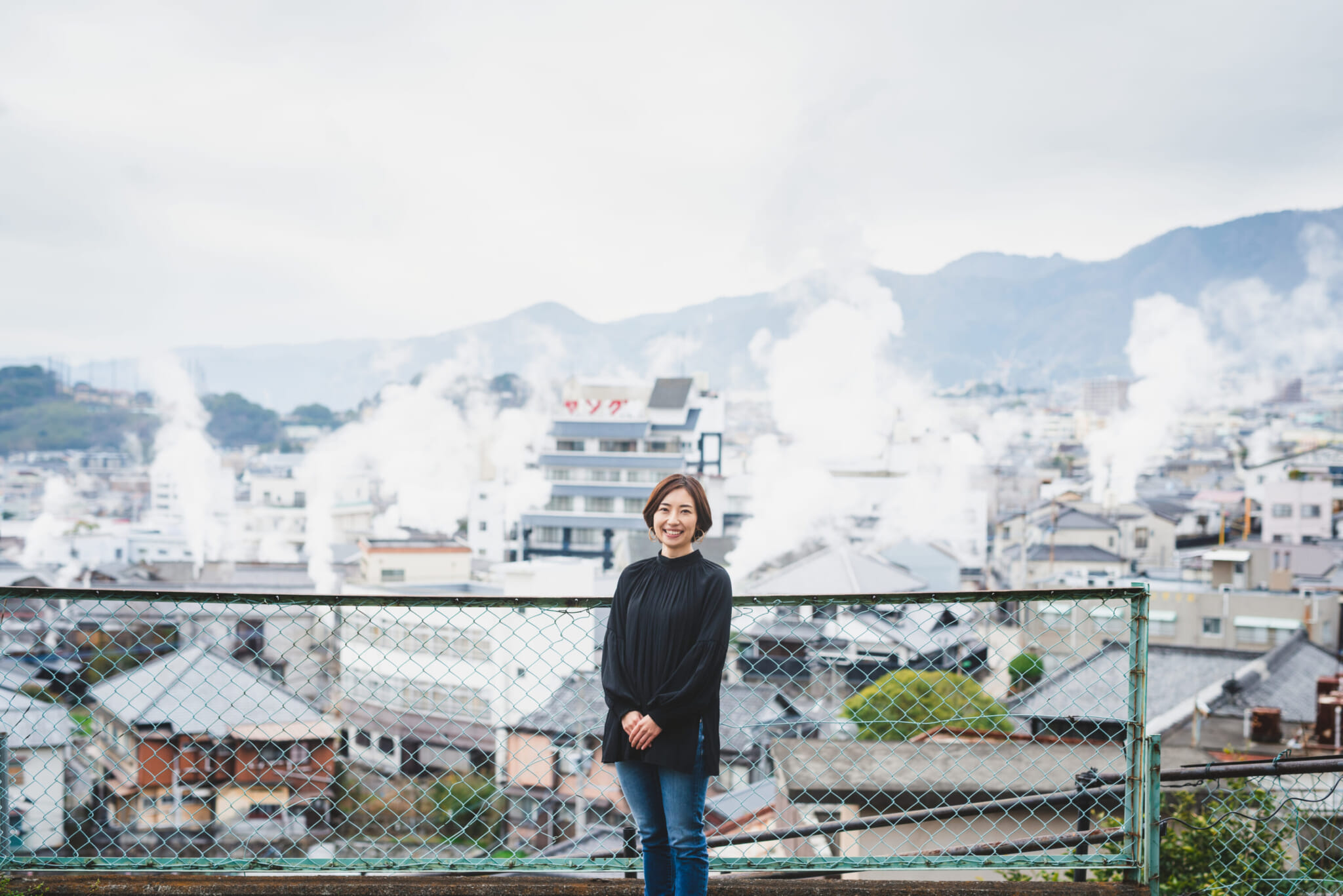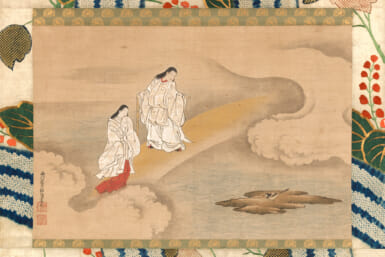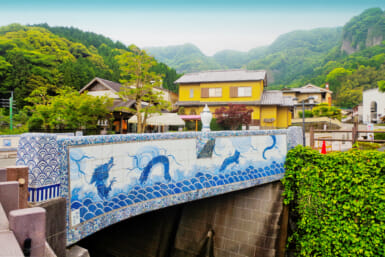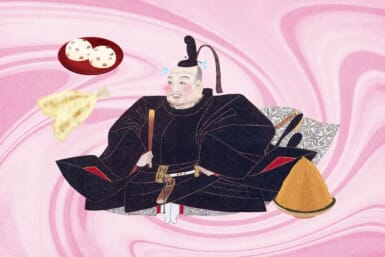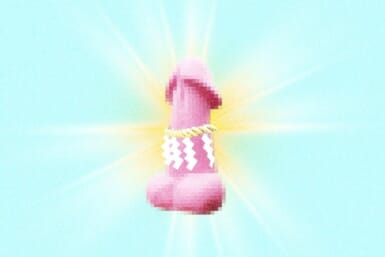Meaning “hot water cure,” toji is a form of balneotherapy that dates back centuries in Japan. Historically, guests would stay at an onsen facility for at least a week, often longer, bathing several times a day as a way of treating various kinds of ailments. Though restorative onsen trips are still popular today, most people will opt for a day or two soaking in mineral-rich waters; given the busy pace of modern times, few have time for a whole week (or more) of tonic hot springs immersion.
With that in mind, Oita Prefecture native Kanoko Ikeda decided to launch her lifestyle brand Haa (stylized as HAA) in 2021. Though it may not be feasible for many people to partake in a full toji experience, she feels there are still ways to introduce the spirit of toji into daily life. She sells bath powder derived from Beppu yunohana. Translated as “hot water flower,” yunohana are a local speciality: medicinal crystalline compounds extracted directly from mineral deposits found in the hot springs. Her product is not only great for one’s skin, but also makes you feel like you’re bathing in your own hot spring bath at home.
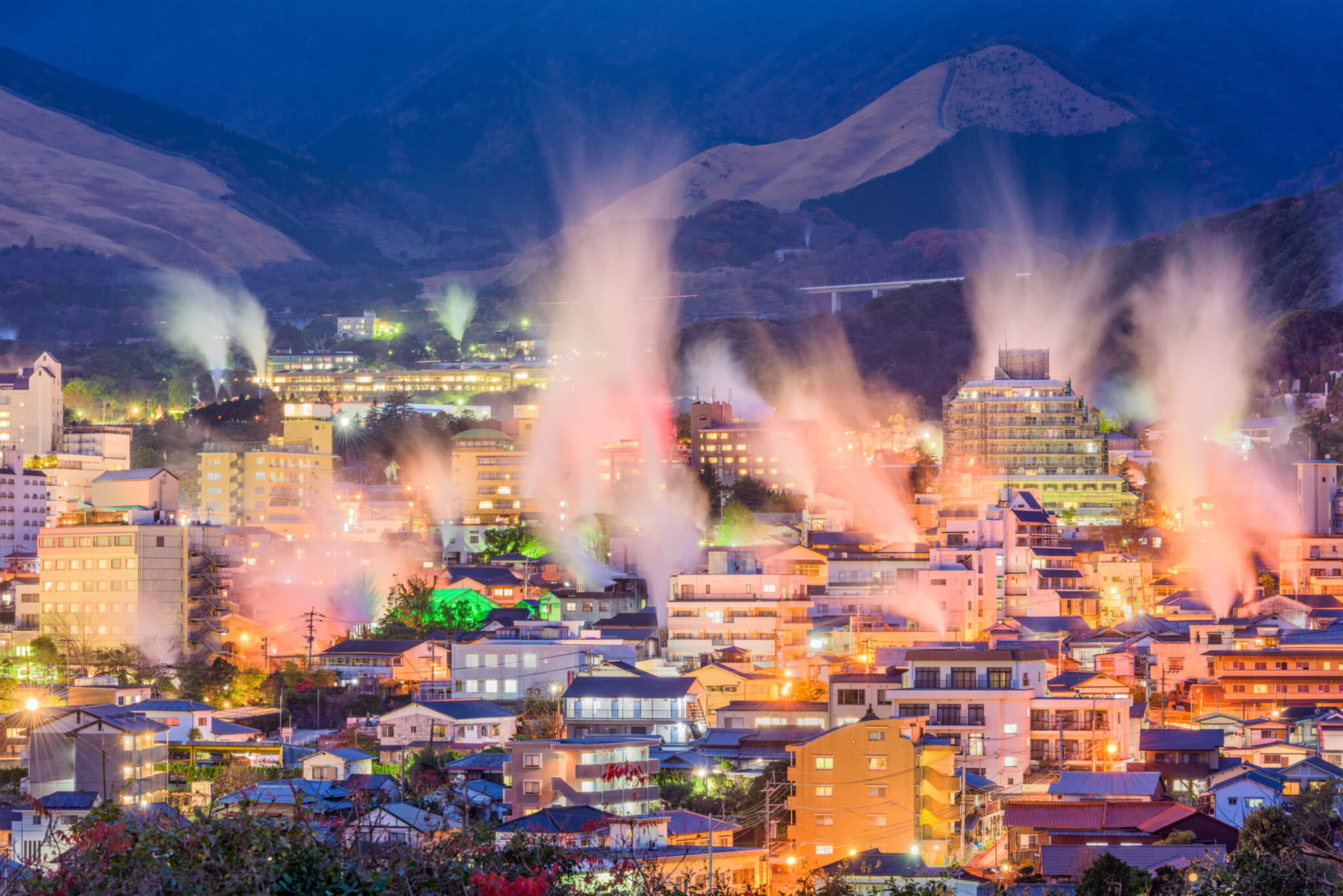
Encouraging Deep Breaths
Born in Beppu, Ikeda found herself drawn to the toji culture that arose in the waters of the city’s Kannawa hot springs. “In the olden days in Japan, during off-seasons for agriculture, farmers would engage in toji to rest their weary bodies,” she explains. With this traditional culture at risk of fading, however, she wondered what a modern iteration might look like. She and her team arrived at a succinct mission: to bring deep breaths into people’s daily lives. “The aim of the company is to encourage people to slow down and take more time to breathe with a ‘haaaaa’ — hence the name.”
It was Ikeda’s own personal experiences that inspired her to found Haa two-and-a-half years ago. She started out working at a movie distribution company in Tokyo before joining an advertising agency — two industries that can be notoriously demanding. Focused on her daily tasks, she gave little thought to her own mental well-being, and people commented on how shallow her breathing was. In 2018, she started dividing her time between Japan’s capital and her hometown of Beppu and soon noticed that the rhythm of her breaths was different in each place. She naturally breathed more deeply while in Kyushu, particularly when bathing in an onsen.
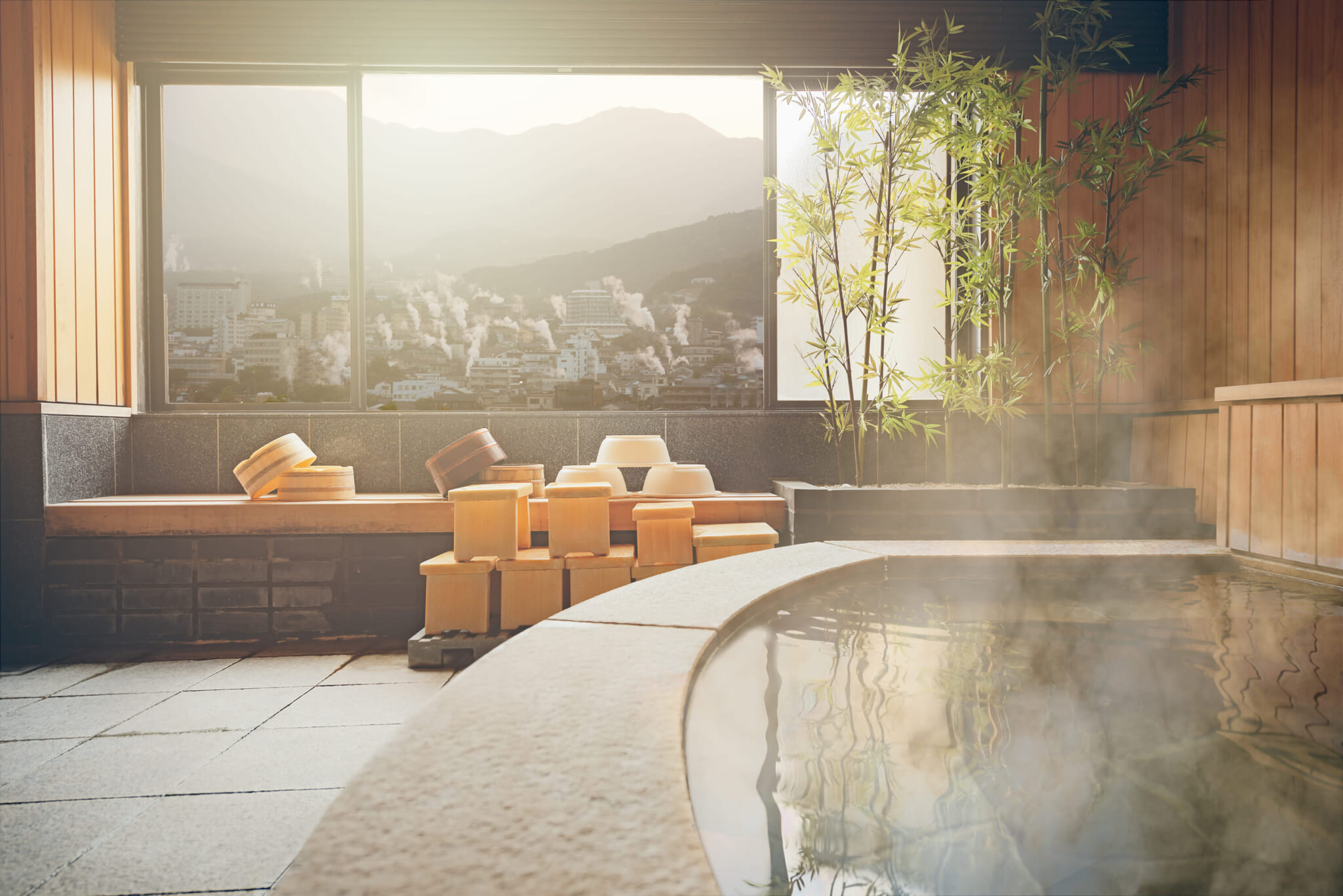
“Beppu is my hometown and the place where I reaffirmed my identity,” says Ikeda. “It was when I returned there at the age of 30 that I learned about toji culture. Until then, I worked late into the night in Tokyo, worrying about my cellphone even though it wasn’t ringing. There were times when I forgot to eat and lost weight as a result. I was thinking too much about the feelings of the people I worked with and, without realizing it, I had reached my limit. In such a situation, I dared to go to a hot spring resort to heal my mind and body. That’s when I came across toji culture and realized the importance of it.”
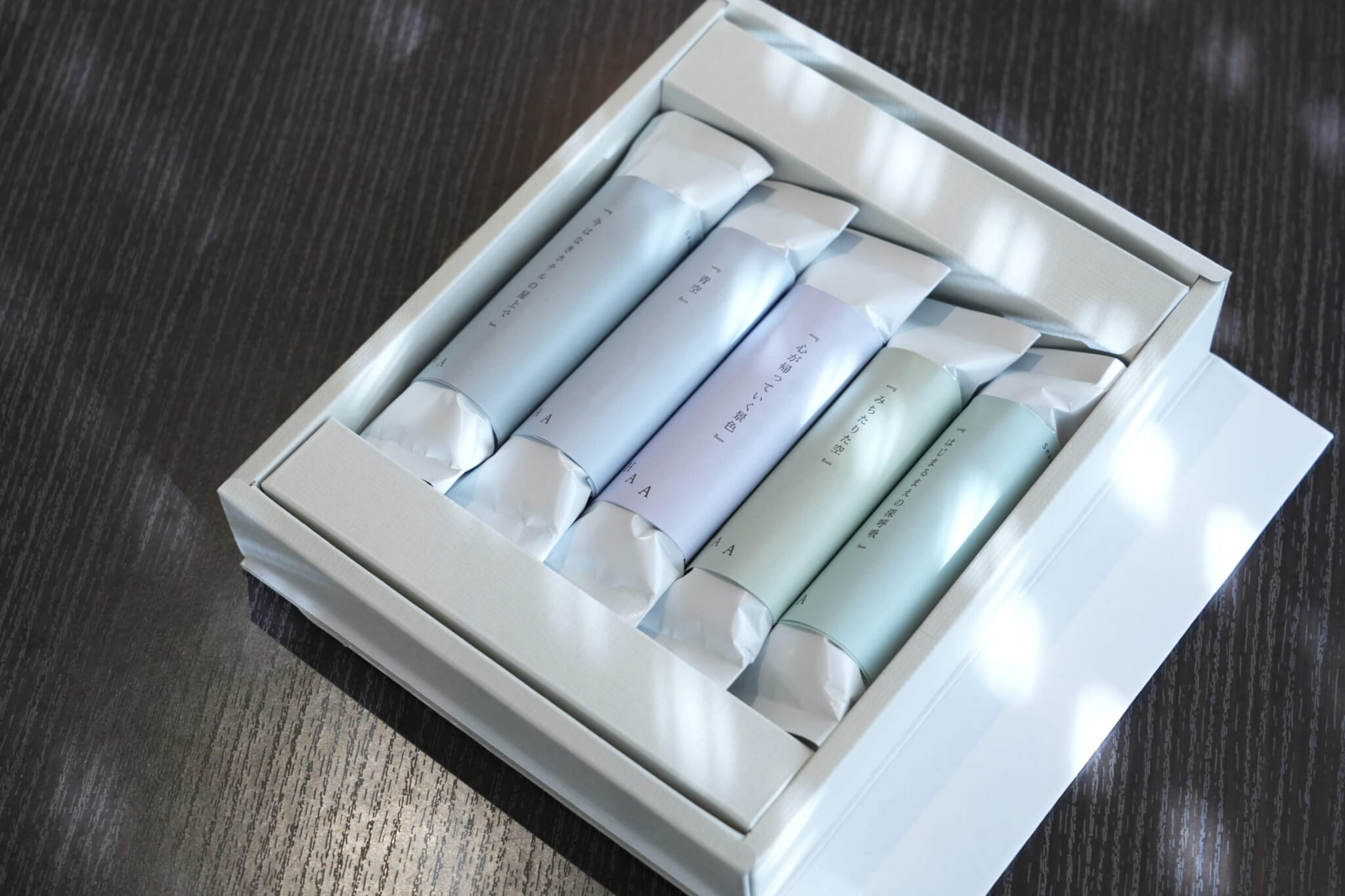
Promoting Toji Globally
But Ikeda worried that the culture was dying, particularly after she witnessed a hot spring inn close down near where she lived. Determined to do something about it, she worked with female ryokan owners — known as okami-san — to set up a coworking space in Beppu, allowing members to enter certain nearby onsen facilities as often as they wished. This encouraged more people to come bathe in the Kannawa region, which is famous for its wisps of steam rising from the ground. The plan worked well, but that wasn’t enough for her. She wanted to promote toji beyond her hometown, which is why she wanted to create an onsen-related product that could be sold globally.
“My aim now is to spread the brand and the benefits of toji around the world,” Ikeda says. “However, unlike Japan, most countries don’t really have this kind of bathing culture, so I need to think about the best way to communicate about that.
“For a lot of people, it may have been a while since they’ve taken a long breath,” continues Ikeda. “When your head and heart are full, your breathing is shallow without you being aware of it.” She encourages those who have trouble with their breathing to take a long bath with Haa powder — or, if they can manage, to take a trip to Beppu to experience the healing waters of Kannawa firsthand, particularly a centuries-old medicinal steam bath called Mushi-yu. “I often go there early in the morning to detoxify. It feels so good.”
This article appeared in Kyushu Weekender 2024. To read the whole issue, click here.

